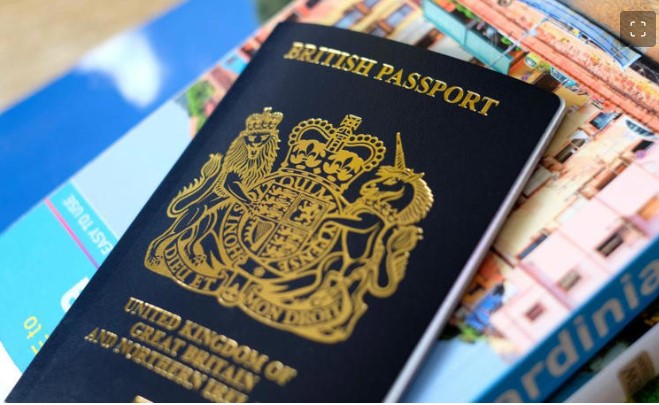‘I was in tears’: Briton with valid passport barred from flight over Brexit rules

Travellers who have not used their passport for a while were this week being urged to dig it out and check it conforms to the post-Brexit rules for entering the EU – because if it doesn’t, you will almost certainly be denied boarding this summer.
Despite previous warnings in Guardian Money and some other publicity, UK travellers trying to enter the Schengen zone are being turned away on a daily basis by airline staff at boarding gates – in most cases because their UK passport was issued more than 10 years ago.
Rosi Simpson, a teacher from Brighton, is one of the latest to be caught up in the confusion. She says she was left “mortified and in tears” after easyJet staff refused to allow her to board a flight to Paris to see her son, who is studying there, because her UK passport had been issued 10 years and one day previously.
“I had no idea of the 10-year rule,” she says. “I’d checked the expiry date, and my passport had eight months remaining. What happened at the boarding gate was absolutely awful. I lost the cost of the flight and the accommodation I’d booked – I’d been so looking forward to seeing my son – all because a load of wankers voted for Brexit. What I don’t understand is why this [rule change] hasn’t had more publicity – an information campaign. I wasn’t the only one who this had happened to at the airport that day,” she says.
In terms of flights and ferries to mainland Europe, passengers will also be denied boarding if their passport expires less than three months before their return date. Previously, it was thought that UK travellers needed at least six months left, although the EU has since clarified the three-month requirement.
Prior to Brexit, UK passport holders could travel in and out of the EU as long as they held a valid passport, even one that expired the day after their return.
The more onerous rules, which came into effect in 2021, apply to UK passport holders travelling to any EU country (except Ireland), plus the others in the Schengen zone: Iceland, Liechtenstein, Norway, Andorra, Monaco, San Marino, the Vatican and Switzerland.
The “over 10-year” problem came about because, for many years, those renewing their passport before the previous one expired were able to add any remaining time left. Prior to September 2018, you could have up to nine months added to the replacement’s 10-year length – meaning their passport could be valid for as long as 10 years and nine months.
Passengers may look at their passport, see that it does not expire until well after their return, and conclude that all is well. However, they need to check the date of issue. If the passport will be more than 10 years old on the day of entry, they will not be allowed in.
The change has caught out a great many passengers who were unaware of the change. Last year, Guardian Money featured the case of Pat Cerely and her husband, Peter, who were refused permission to board their plane to Madeira on the grounds that Pat’s passport was not valid – even though it had another nine months remaining.
If you have a holiday planned this summer, check your passport now to make sure it meets all the requirementsJo Rhodes of Which?
Every day, others are falling foul of the rule – and if it happens to you, it can be a financial disaster. Travel insurers will not pay out for a lost holiday if you tried to travel with an invalid passport.
Jo Rhodes, the deputy travel editor at Which?, says: “Recently, some travellers have been caught out by EU passport rules, meaning they haven’t been able to go on holiday as planned.
“Your passport must have been issued in the past 10 years at the time of entering the EU. Legally, you’re also required to have at least three months left on your passport at the time you plan on exiting the EU. If you have a holiday planned this summer, check your passport now to make sure it meets all the requirements for your destination, so you don’t risk being turned away at the airport.”
She says Which? advises travelling with at least six months’ validity “to be on the safe side”.
She adds: “Despite the legal requirement being three months, UK travellers are strongly advised by the European Commission and the UK government to have no less than six months on the end of their passports. This is because some border guards believe that people tend to stay in the EU for longer than they say and so they’re reluctant to grant you entry if you have less than six months.”
Countries such as Romania, which is in Europe but outside the Schengen zone, stipulate that UK passport holders are required to have at least six months on their passports to enter the country. It is by no means alone.







